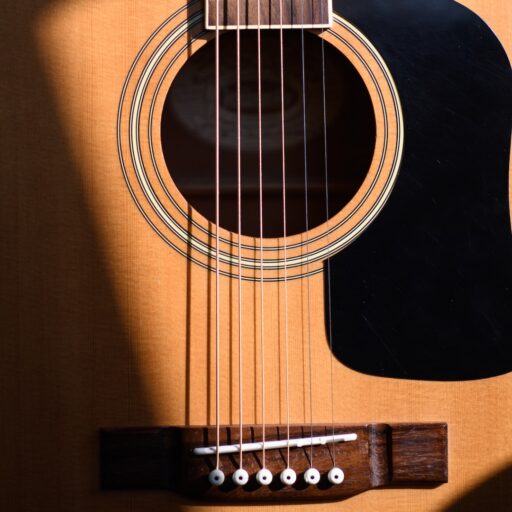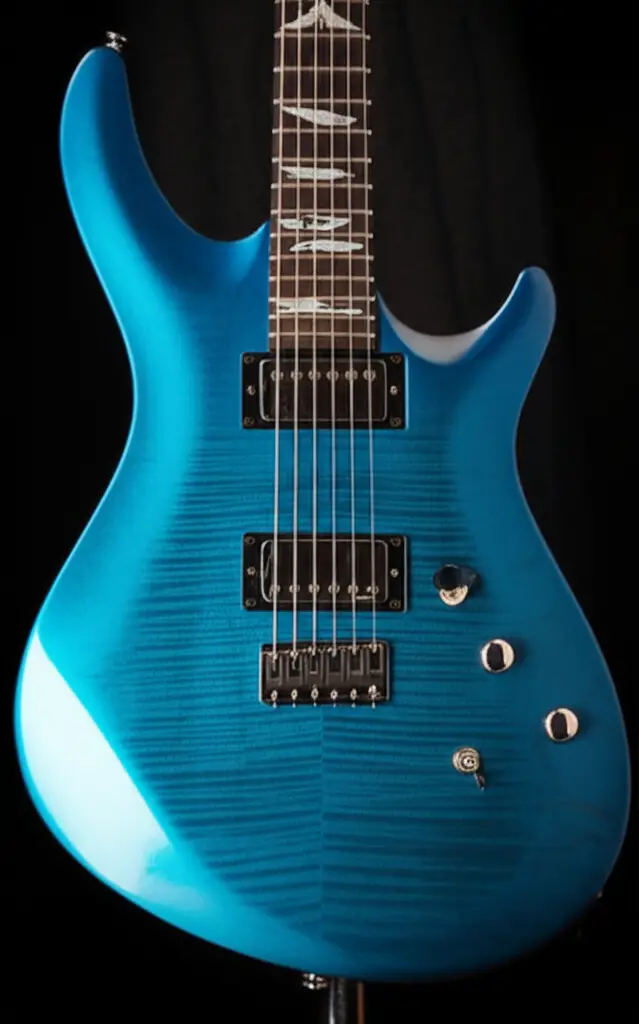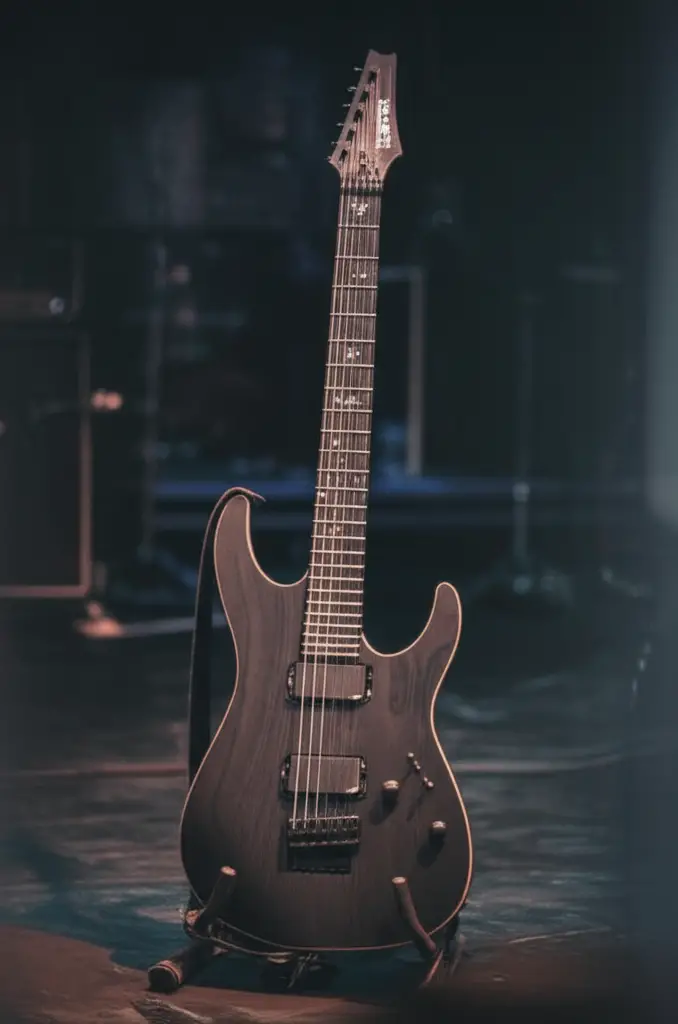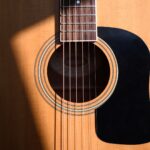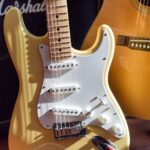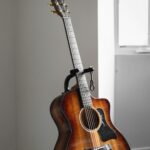Support our educational content for free when you purchase through links on our site. Learn more
PRS Guitars Uncovered: 12 Must-Know Facts & Models (2025) 🎸
If you’ve ever caught yourself mesmerized by those elegant bird inlays or wondered why PRS guitars command such a devoted following, you’re in the right place. We at Guitar Brands™ have spent countless hours testing, playing, and obsessing over PRS guitars—and trust us, these aren’t your average axes. From their groundbreaking five-way rotary selector to the legendary “Wide Thin” neck profile, PRS guitars blend the warmth of Gibson with the clarity of Fender in a way that’s uniquely their own.
Here’s a little secret: one of our team members once swapped a vintage Les Paul for a PRS Custom 24 and was stunned by how effortlessly the PRS handled everything from silky jazz chords to screaming rock leads. Curious how PRS pulls off this tonal magic? Stick around as we unravel the history, craftsmanship, and iconic models that make PRS guitars a true masterpiece in the guitar world.
Key Takeaways
- PRS guitars combine Gibson warmth and Fender clarity with innovative features like the five-way rotary pickup selector and proprietary tremolo systems.
- The brand offers a wide range of models from affordable SE series to ultra-premium Private Stock guitars, catering to every player and budget.
- PRS’s signature “Wide Thin” neck profile and meticulous craftsmanship ensure exceptional playability and tone versatility.
- Iconic models like the Custom 24, McCarty, and Silver Sky have shaped the modern guitar landscape and are endorsed by legends like Carlos Santana and John Mayer.
- Investing in a PRS guitar means getting a well-built, versatile instrument that holds value and inspires creativity for years to come.
Ready to explore PRS guitars?
👉 Shop PRS Guitars on:
Table of Contents
- ⚡️ Quick Tips and Facts
- 🎸 The Genesis of Tone: A Deep Dive into PRS Guitars’ Storied History
- ✨ The PRS Philosophy: Crafting Sonic Excellence and Visual Artistry
- 🛠️ Anatomy of a Masterpiece: Unpacking PRS Guitar Construction & Materials
- 🔍 Signature PRS Innovations: Beyond the Birds and the Trem
- 🎶 The PRS Sound Spectrum: Tone, Versatility, and Playability Explored
- 🌟 PRS Guitar Series Unveiled: Finding Your Perfect Axe
- 1. The Core Line: Pinnacle of Craftsmanship
- 2. S2 Series: American-Made Excellence, Accessible Price
- 3. SE Series: Global Reach, Uncompromised Quality
- 4. Private Stock: The Ultimate Dream Guitar
- 5. Bolt-On Series: Classic Feel, Modern Performance
- 6. Acoustic Guitars: Unplugged PRS Magic
- 7. Amplifiers: The Other Side of the PRS Tone Equation
- 🎸 Iconic PRS Models: A Closer Look at Legends
- 🎤 Artists Who Swear by PRS: From Legends to Modern Maestros
- 🤔 Is a PRS Guitar Right for YOU? Weighing the Pros and Cons
- 💰 The PRS Investment: Understanding Value Across the Lines
- 🛒 Your Ultimate PRS Buying Guide: Navigating the Options
- 🔧 Keeping Your PRS Pristine: Care, Maintenance, and Setup Tips
- debunking Myths and Misconceptions: Separating Fact from Fiction
- Conclusion: The Enduring Legacy of PRS Guitars
- Recommended Links
- FAQ: Your Burning PRS Questions Answered
- Reference Links
⚡️ Quick Tips and Facts
Welcome to the ultimate PRS guitars deep dive! 🎸 Whether you’re a seasoned shredder or a curious newbie, here’s a quick snapshot of what makes PRS guitars a titan in the guitar world:
| Aspect | Rating (1-10) | Quick Insight |
|---|---|---|
| Design | 9.5 | Iconic bird inlays & sleek contours that turn heads. |
| Tone Versatility | 9.0 | From bluesy warmth to searing rock, PRS nails it. |
| Build Quality | 9.8 | Handmade precision with premium woods and hardware. |
| Playability | 9.3 | Smooth neck profiles and balanced weight make playing a joy. |
| Price Range | 7.0 | Premium instruments, but with options for every budget. |
Key Quick Facts:
- Founded in 1985 by Paul Reed Smith in Maryland.
- Famous for blending Gibson warmth and Fender clarity.
- Signature bird inlays first appeared in 1976.
- Offers models from affordable SE series to ultra-luxe Private Stock.
- Known for innovative pickups and proprietary tremolo systems.
- Endorsed by legends like Carlos Santana, John Mayer, and Mark Tremonti.
Want to know why PRS guitars are often called the “best of both worlds”? Stick around as we unravel their history, craftsmanship, and sonic magic. 🎶
For a broader perspective on guitar brands, check out our What Are the 10 Most Popular Guitar Brands in the World? 🎸 (2025).
🎸 The Genesis of Tone: A Deep Dive into PRS Guitars’ Storied History
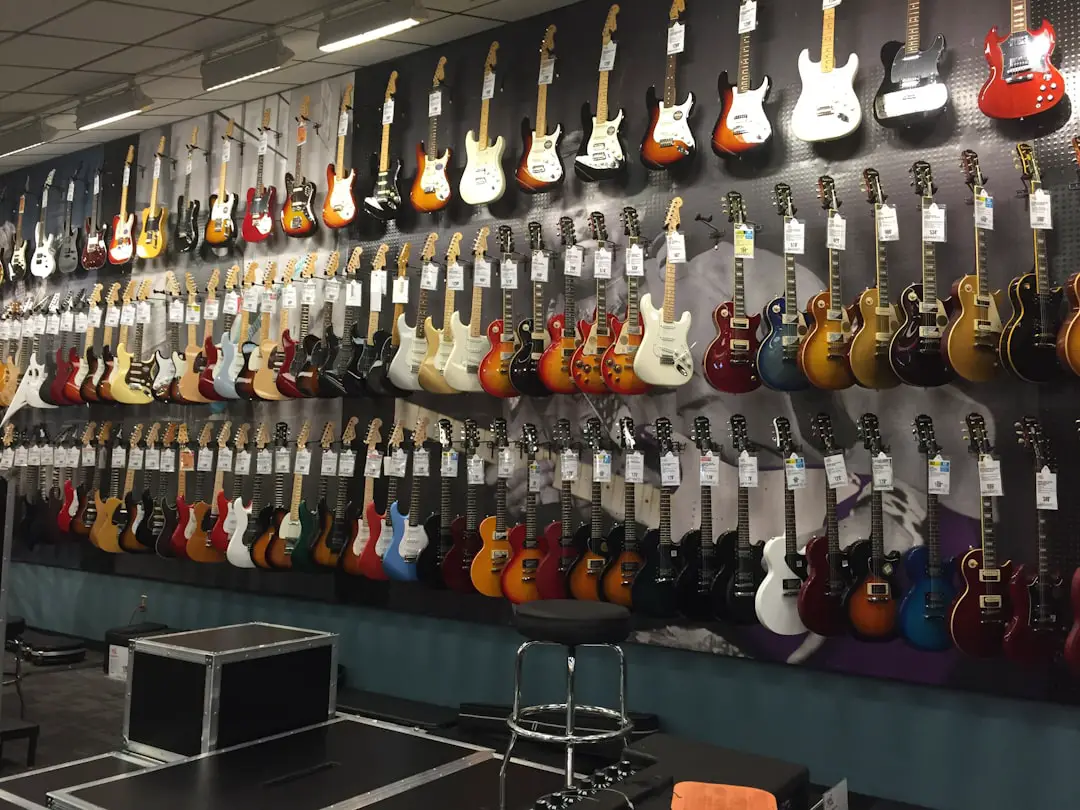
Paul Reed Smith Guitars is more than just a brand—it’s a story of passion, innovation, and relentless pursuit of tone perfection. Founded in 1985 by Paul Reed Smith himself, this Maryland-based company quickly rose from a small workshop to a global guitar powerhouse.
Early Beginnings and Breakthroughs
PRS’s journey began with Paul building his first electric bass in 1972 and his first guitar at 19, which earned him college credit for its professional quality. Early adopters included legends like Peter Frampton and Ted Nugent, who recognized the unique blend of Fender and Gibson traits in PRS guitars.
By 1985, the debut “Custom” model showcased a revolutionary body shape, a five-way rotary pickup selector, and the now-iconic bird inlays—elements that would become PRS’s signature. The company’s early success was fueled by its ability to combine Gibson’s warmth with Fender’s clarity, a sonic marriage that still defines PRS today.
Milestones and Expansion
- 1986: 1,000th guitar produced.
- 1992: Introduction of the “Dragon” models with intricate inlays.
- 1994: Launch of the McCarty model, honoring Gibson’s Ted McCarty.
- 2000: SE series introduced for affordable, global access.
- 2007: Entry into amplifiers with the Archon series.
- 2014: S2 series launched, blending American craftsmanship with cost efficiency.
PRS’s history is a testament to innovation and quality, making it a favorite among both collectors and working musicians.
For a detailed timeline, visit the PRS Guitars Wikipedia page.
✨ The PRS Philosophy: Crafting Sonic Excellence and Visual Artistry
What sets PRS apart? It’s their commitment to marrying art and science. Every guitar is a blend of meticulous craftsmanship, cutting-edge technology, and aesthetic beauty.
The Bird Inlays: More Than Decoration
PRS’s famous birds-in-flight fretboard inlays aren’t just pretty—they’re a symbol of the brand’s identity. Inspired by Paul’s love of nature and flight, these inlays range from peregrine falcons to ruby-throated hummingbirds, each adding a touch of personality and elegance.
Tone and Playability: The PRS Promise
PRS guitars are designed to be versatile tone machines. Whether you want smooth jazz, heavy rock, or shimmering clean tones, PRS pickups and electronics deliver with clarity and depth. Their neck profiles, often described as “wide thin,” strike a perfect balance between speed and comfort.
Innovation Meets Tradition
- Proprietary tremolo systems designed with John Mann.
- Five-way rotary pickup selectors for tonal variety.
- Use of premium woods like mahogany, maple, and rosewood.
- Handmade pickups with exclusive wire machines dating back to the 1950s.
This philosophy has earned PRS a loyal fanbase and a reputation for instruments that inspire creativity.
🛠️ Anatomy of a Masterpiece: Unpacking PRS Guitar Construction & Materials
Let’s peel back the layers of a PRS guitar and see what makes it tick.
Body Woods and Finishes
- Mahogany bodies provide warmth and sustain.
- Maple tops add brightness and visual flair, especially in “10 Top” figured maple.
- Finishes range from classic sunbursts to exotic microbursts and custom colors.
Neck Construction
- Set-neck design for sustain and resonance.
- “Wide Thin” neck profile favored for fast playing.
- Rosewood or ebony fretboards with smooth, hand-sculpted frets.
Hardware and Electronics
- PRS-designed tuners and bridges for stability.
- Custom-wound humbuckers and single coils, including the famous 408 pickups.
- Five-way rotary or blade switches for versatile tone shaping.
Vibrato Systems
- PRS tremolo designed for smooth action and tuning stability.
- Stoptail bridges available for players who prefer fixed bridges.
Quality Control
Every PRS guitar undergoes rigorous inspection and setup by master luthiers at the Stevensville factory, ensuring playability and tone consistency.
🔍 Signature PRS Innovations: Beyond the Birds and the Trem
PRS isn’t just about looks—they innovate relentlessly.
The 5-Way Rotary Pickup Selector
Unlike traditional toggle switches, this rotary selector lets you access multiple pickup combinations, including series, parallel, and coil-split modes, expanding your tonal palette.
408 Pickups
Introduced in 2012, these pickups use vintage-style wire and magnets, offering no volume loss when coil-splitting—a big deal for players who want humbucker thickness and single-coil clarity in one guitar.
The “Wide Thin” Neck Profile
This neck shape is a PRS hallmark, combining the comfort of a thin neck with the fullness of a wider fretboard, making it ideal for diverse playing styles.
Private Stock Customization
PRS’s Private Stock program lets players design bespoke guitars with exotic woods, intricate inlays, and custom electronics, showcasing the brand’s artisan craftsmanship.
🎶 The PRS Sound Spectrum: Tone, Versatility, and Playability Explored
PRS guitars are often described as “the best of both worlds” because they blend the warmth of Gibson with the clarity of Fender.
Tonal Characteristics
- Warmth: Mahogany body and neck woods produce rich midrange and sustain.
- Brightness: Maple tops and pickups add sparkle and articulation.
- Versatility: Coil-splitting and multiple pickup configurations cover blues, jazz, rock, metal, and more.
Playability
- Smooth necks and well-dressed frets make fast runs and bends effortless.
- Balanced weight distribution reduces fatigue during long gigs.
- Tremolo systems offer expressive vibrato without tuning headaches.
Real-World Anecdote
One of our team members swapped a vintage Les Paul for a PRS Custom 24 and was stunned by how effortlessly the PRS handled everything from clean jazz chords to high-gain leads, all while feeling lighter on the shoulder.
🌟 PRS Guitar Series Unveiled: Finding Your Perfect Axe
PRS offers a range of series tailored to different players and budgets. Here’s the lowdown:
1. The Core Line: Pinnacle of Craftsmanship
| Feature | Description |
|---|---|
| Made in | Stevensville, Maryland, USA |
| Wood Quality | Premium mahogany, figured maple tops |
| Electronics | Custom-wound pickups, 5-way rotary selector |
| Neck | Set-neck, “Wide Thin” profile |
| Price Range | High-end, professional-grade |
Why Choose Core? If you want the ultimate PRS experience with impeccable build and tone, this is your playground.
2. S2 Series: American-Made Excellence, Accessible Price
- Made in the USA with some cost-saving design tweaks.
- Features asymmetrical beveled tops and simplified appointments.
- Great for players who want American quality without Core prices.
3. SE Series: Global Reach, Uncompromised Quality
- Manufactured in Korea and Indonesia.
- Uses maple veneers and multi-ply necks.
- Offers classic PRS design and tone at an affordable price.
4. Private Stock: The Ultimate Dream Guitar
- Custom-built with exotic woods and unique designs.
- Handcrafted by PRS’s master luthiers.
- For collectors and players who want one-of-a-kind instruments.
5. Bolt-On Series: Classic Feel, Modern Performance
- Bolt-on neck construction for snappy attack.
- Includes models like the CE 24 and Silver Sky.
- Perfect for players who love Fender-style necks with PRS tone.
6. Acoustic Guitars: Unplugged PRS Magic
- PRS’s acoustic line blends their electric guitar expertise with rich acoustic tone.
- Features solid woods and proprietary bracing.
7. Amplifiers: The Other Side of the PRS Tone Equation
- PRS offers amps like the Archon and MT series.
- Designed to complement their guitars with high-gain clarity and dynamic response.
🎸 Iconic PRS Models: A Closer Look at Legends
1. PRS Custom 24: The Original Icon
| Attribute | Details |
|---|---|
| Scale Length | 25″ |
| Pickups | Dual humbuckers with coil-split |
| Bridge | PRS tremolo or stoptail |
| Neck Profile | Wide Thin |
| Signature Feature | Five-way rotary selector, bird inlays |
Why It Rocks: The Custom 24 is the blueprint for modern PRS guitars—versatile, comfortable, and stunning.
2. PRS McCarty: Vintage Soul, Modern Heart
- Named after Ted McCarty, former Gibson president.
- Deeper body and vintage-inspired tone.
- Push-pull coil-splitting and three-way toggle switch.
3. PRS Silver Sky: John Mayer’s Strat-Inspired Marvel
- Bolt-on neck, single-coil pickups.
- Combines Fender Strat feel with PRS craftsmanship.
- One of the best-selling PRS models ever.
4. PRS DGT (David Grissom Tremonti): The Workhorse
- Semi-hollow body with aggressive pickups.
- Designed for versatility and sustain.
5. PRS CE 24: Bolt-On Brilliance
- Classic PRS tone with bolt-on neck snap.
- Great for players seeking Fender-style attack.
6. PRS Hollowbody: Resonant Riches
- Semi-hollow design for warm, woody tone.
- Perfect for jazz, blues, and classic rock.
🎤 Artists Who Swear by PRS: From Legends to Modern Maestros
PRS guitars have attracted a stellar roster of players:
- Carlos Santana: His signature models helped define the PRS sound.
- John Mayer: Co-designed the Silver Sky, blending Stratocaster vibes with PRS precision.
- Mark Tremonti: Heavy rock tone pioneer with signature models and amps.
- David Grissom: Known for his tasteful semi-hollow PRS guitars.
- Santana, Orianthi, and many more swear by PRS for their tone and reliability.
Their endorsements underscore PRS’s versatility across genres—from blues and jazz to metal and pop.
🤔 Is a PRS Guitar Right for YOU? Weighing the Pros and Cons
Pros ✅
- Versatile tone suitable for many genres.
- Exceptional build quality and attention to detail.
- Iconic aesthetics with unique bird inlays.
- Wide range of models for different budgets.
- Comfortable neck profiles for fast playing.
Cons ❌
- Pricey Core and Private Stock models may be out of reach for beginners.
- Some players prefer traditional single-coil Fender or Les Paul tones exclusively.
- Bolt-on neck models may feel different if you’re used to set-neck guitars.
If you want a guitar that can do it all with style and substance, PRS is a fantastic choice. But if you’re strictly chasing vintage Fender or Gibson tones, you might want to try before you buy.
💰 The PRS Investment: Understanding Value Across the Lines
PRS guitars hold their value well, especially Core and Private Stock models. Here’s a quick value snapshot:
| Series | Investment Potential | Notes |
|---|---|---|
| Private Stock | Very High | Custom, limited editions appreciate. |
| Core | High | Professional-grade, sought after. |
| S2 | Moderate | Good value, American-made. |
| SE | Entry-Level | Affordable, but less collectible. |
Buying used PRS guitars can be a smart move—many retain tone and playability for decades.
🛒 Your Ultimate PRS Buying Guide: Navigating the Options
Step 1: Define Your Budget
- Entry-level: SE series.
- Mid-range: S2 and Bolt-On.
- Premium: Core and Private Stock.
Step 2: Choose Your Style
- Solid body vs. semi-hollow.
- Humbuckers vs. single coils.
- Tremolo vs. stoptail bridge.
Step 3: Play Before You Buy
Visit a local store or check out Guitar Center’s PRS collection to try models firsthand.
Step 4: Consider Used Market
Sites like Reverb and Sweetwater often have excellent deals on lightly used PRS guitars.
Step 5: Setup and Maintenance
PRS guitars come well set up, but a professional setup can optimize playability.
👉 CHECK PRICE on:
- PRS SE Custom 24: Amazon | Guitar Center | PRS Official Website
- PRS Core Custom 24: Amazon | Sweetwater | PRS Official Website
🔧 Keeping Your PRS Pristine: Care, Maintenance, and Setup Tips
Daily Care
- Wipe down strings and body after playing.
- Use a quality guitar polish safe for nitrocellulose or polyurethane finishes.
Setup Tips
- Check neck relief and adjust truss rod if comfortable with the process.
- Maintain proper string height and intonation.
- Lubricate nut slots with graphite or specialized lubricant.
Professional Maintenance
- Annual professional setup recommended.
- Pickup height adjustments for optimal tone.
- Periodic fret polishing and nut replacement as needed.
Proper care ensures your PRS stays as stunning and playable as the day you got it.
debunking Myths and Misconceptions: Separating Fact from Fiction
Myth 1: PRS Guitars Are Just Expensive Les Paul Copies ❌
Fact: PRS blends Fender and Gibson traits but has a unique voice, design, and innovation. The Custom 24’s 25” scale and rotary selector are distinct features.
Myth 2: PRS Guitars Are Only for Rock Players ❌
Fact: PRS guitars cover blues, jazz, metal, country, and more. Their tonal versatility is legendary.
Myth 3: SE Series Are Cheap Knockoffs ❌
Fact: SE models offer genuine PRS design and quality at accessible prices, perfect for beginners and pros alike.
Myth 4: PRS Neck Profiles Are Too Thick for Fast Playing ❌
Fact: The “Wide Thin” neck is designed for speed and comfort, favored by many shredders.
Conclusion: The Enduring Legacy of PRS Guitars

After our deep dive into PRS guitars, it’s clear why these instruments have carved out a legendary status in the guitar world. From their innovative design elements like the iconic bird inlays and five-way rotary selector, to their meticulous craftsmanship and versatile tone, PRS guitars truly offer a unique blend of art and science.
The Positives ✅
- Unmatched build quality with premium woods and hand-finished details.
- Versatile tonal palette that suits nearly every genre.
- Comfortable playability thanks to the “Wide Thin” neck and balanced body.
- Wide range of models from affordable SE series to the ultra-luxe Private Stock.
- Strong artist endorsements and proven stage reliability.
The Negatives ❌
- Pricey premium models may be out of reach for some players.
- Bolt-on neck models feel different from traditional set-neck guitars, which might not suit everyone.
- Some players seeking strictly vintage Fender or Gibson tones might find PRS’s hybrid voice less familiar.
Our Confident Recommendation
If you want a guitar that combines the best of Fender and Gibson with a modern twist, PRS is a fantastic choice. Whether you’re a beginner eyeing the SE series or a pro chasing a Core or Private Stock masterpiece, PRS offers instruments that inspire and perform. Their blend of innovation, aesthetics, and tone makes them stand out in a crowded market.
Remember that the best guitar is the one that feels right in your hands and sparks your creativity. So, try before you buy, and let PRS’s craftsmanship speak for itself.
Ready to find your perfect PRS? Dive into the PRS Guitar Series Unveiled section again for detailed guidance.
Recommended Links
👉 Shop PRS Guitars and Accessories:
- PRS SE Custom 24: Amazon | Guitar Center | PRS Official Website
- PRS Core Custom 24: Amazon | Sweetwater | PRS Official Website
- PRS Silver Sky: Amazon | Guitar Center | PRS Official Website
- PRS Amplifiers (Archon, MT Series): PRS Official Website
Books to Deepen Your PRS Knowledge:
- Paul Reed Smith Guitars: The Art and Craft of a Master Luthier by Paul Reed Smith (Amazon)
- Guitar Player Repair Guide by Dan Erlewine (Amazon) — Great for maintaining your PRS guitar.
FAQ: Your Burning PRS Questions Answered

What is the difference between PRS SE and PRS Core guitars?
PRS SE guitars are designed as affordable, global-access models made primarily in Korea and Indonesia. They use cost-effective materials like maple veneers and multi-ply necks but maintain PRS’s signature design and tone. SE guitars are perfect for beginners or budget-conscious players who want the PRS vibe without the premium price.
PRS Core guitars are American-made in Maryland with premium tonewoods, hand-wound pickups, and meticulous craftsmanship. They feature set-neck construction, “Wide Thin” neck profiles, and advanced electronics. Core models are aimed at professional musicians and serious enthusiasts who demand the highest quality and tonal versatility.
Read more about “What Guitars Do Most Professionals Use? Top 10 Picks (2025) 🎸”
How do PRS guitars compare to Gibson and Fender guitars in terms of quality and sound?
PRS guitars blend the warmth and sustain of Gibson with the clarity and brightness of Fender, creating a unique hybrid tone. Quality-wise, PRS rivals both brands with exceptional craftsmanship, often hand-finishing their instruments to exacting standards.
- Sound: PRS pickups and electronics offer more tonal options, including coil-splitting and series/parallel wiring, giving players a broader palette.
- Build: PRS’s neck profiles and body contours often feel more ergonomic and balanced.
- Innovation: PRS incorporates modern features like rotary selectors and proprietary tremolos that Fender and Gibson don’t typically offer.
In summary, PRS guitars are often described as the “best of both worlds,” appealing to players who want versatility without sacrificing classic tone.
What are the best PRS guitar models for beginners and intermediate players?
For beginners and intermediate players, the PRS SE series is the best entry point. Models like the SE Custom 24 and SE Silver Sky offer authentic PRS tone and feel at accessible prices.
Intermediate players looking to upgrade might consider the S2 series or Bolt-On models like the CE 24, which provide American-made quality with some premium features but at a lower price point than Core models.
Read more about “🎸 Guitar Brands Ranked: The Ultimate Top 15 List for 2025”
Are PRS guitars worth the investment, and what makes them so expensive compared to other guitar brands?
PRS guitars are worth the investment if you value build quality, tonal versatility, and aesthetic beauty. The higher price tags on Core and Private Stock models reflect:
- Handcrafted construction in the USA.
- Premium tonewoods and exotic materials.
- Custom-wound pickups and proprietary hardware.
- Rigorous quality control and setup.
- Brand prestige and artist endorsements.
While SE models are more budget-friendly, the premium lines hold their value well and often appreciate, especially limited editions and Private Stock guitars.
How do PRS pickups differ from other brands?
PRS pickups are mostly hand-wound in-house using vintage-style wire machines dating back to the 1950s. Their 408 pickups, for example, offer no volume loss when coil-splitting, a feature not commonly found in other humbuckers. This attention to detail results in pickups that are clear, dynamic, and versatile.
Read more about “What Are the 10 Most Popular Guitar Brands in the World? 🎸 (2025)”
Can PRS guitars handle heavy music genres like metal?
Absolutely! PRS offers models like the Mark Tremonti signature and DGT designed for aggressive tones with high-output pickups and stable hardware. Their tonal versatility means you can dial in everything from smooth cleans to searing distortion.
Reference Links
- PRS Guitars Official Website
- PRS Guitars Wikipedia
- Guitar Center PRS Guitars Collection
- PRS Guitars – YouTube Channel
- Sweetwater PRS Guitars
- Reverb PRS Guitars Marketplace
For more on guitar brands and buying tips, visit our Guitar Brand Guides and Guitar Buying Guide.
Thanks for sticking with us on this sonic journey through PRS guitars! Now go find your perfect bird and let those wings take flight. 🎸🕊️
